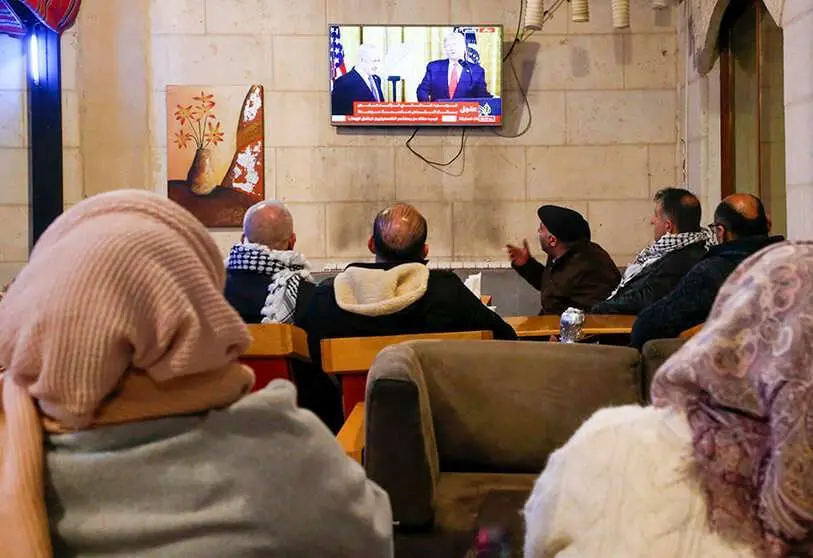Did you say Arab world?

Trump's peace plan calling itself the agreement of the century was a deeply fractured revelation. First there are those known between Israel and Palestine, and then there are those that reveal symptomatic wounds in Arab countries.
The unilateral proposal proposed by Trump and Netanyahu to the Palestinians is a denial of the creation of two states as witnessed by the Green Line. But never mind, the American president is omnipotent and has decided to support his friend Bibi. Both are playing for their next mandates and these alliances are convenient for both sides, so why deprive us of them?
But apart from these electoral calculations, this sad story allows us to rethink the notion of "Arab countries" and redefines the contours not only of maps but also of the imagination.
The plan immediately rejected by the Palestinian Authority was followed by a reaction from the United Nations, which still advocates two states "living side by side in peace and security within recognized borders on the basis of the guidelines defined in 1967".
On the part of the Arab countries, Algeria and Tunisia immediately condemned the agreement of the century, unlike Morocco, whose Foreign Minister declared that he "appreciated the constructive peace efforts made by the current American administration with a view to reaching a just, lasting and equitable solution in the Middle East". This reaction did not please the Moroccans and was followed by action. Indeed, impressive demonstrations took place in Morocco, particularly in the capital Rabat, where some 10,000 people rejected the American-style peace plan. Severely criticized inside and also outside the country, Morocco was put in the dock when it became known a few days later, through the Israeli press, that behind the American century agreement another agreement was being discussed between Morocco and Israel: Morocco's support for the Trump plan would condition American support in the Moroccan conflict in Western Sahara.
Morocco seems to have changed its position on the Palestinian question, or at least places the Sahara conflict above all other diplomatic considerations. But this position cannot be without consequences for a country that hosts the Al-Quds Committee. Will the King continue to preside over the pan-Arab structure that seeks to preserve the Arab-Muslim character of the Holy City of Jerusalem? And something else: will Morocco continue to collect the tax from Palestine, which according to a Middle East Eye survey generates some 6.6 million euros and which does not necessarily go into the pockets of the Palestinians? These questions will inevitably haunt the Cherifian monarchy and will need answers sooner or later!
Beneath other Arab skies, the reactions are neither good nor bad. Egypt is leaning towards the resumption of negotiations, but still under the auspices of Uncle Sam! In fact, the Al-Sissi government calls for "careful examination of the American vision," a diplomatic way of not "getting wet. Egypt has every interest in not upsetting its Israeli neighbor, and it is not alone. Saudi Arabia says it "appreciates" Trump's efforts. So far, it is not surprising that the U.S. president supports Mohammed bin Salman and a rapprochement between Israel and Riyadh has been in evidence since 2018, and for some time now, the common Iranian enemy has made the two countries great allies.
But does recognizing Israel have to go through a denial of Palestine? Be that as it may, Trump's plan reveals that Arab governments are closer to Israel than to their own people.

